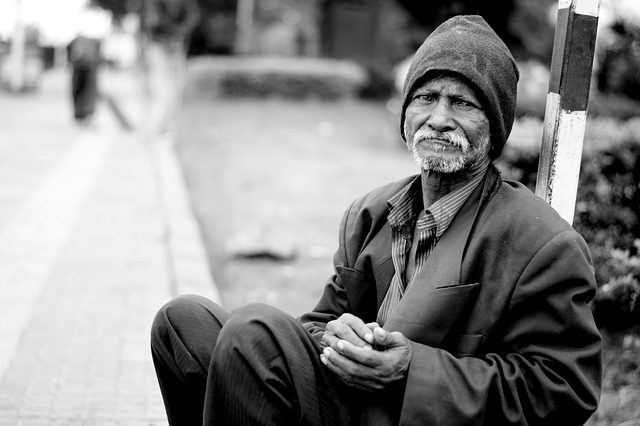As King Benjamin concludes his address in Mosiah 4, he touches on the subject of providing assistance to the poor and needy. This is a familiar subject in scripture — Jesus taught the same thing — and it’s certainly consistent with the concept of Christian living.
As was mentioned in an earlier chapter, Jesus taught in Matthew 25:31-46 that if we feed or clothe people who are in need, we are doing it to Him. He told the rich young ruler that if he wanted to be perfect, he should sell all he had and give the money to the poor. James writes that if we encounter someone without food or clothes and we just give him kind words and no other assistance, we haven’t really helped him.
There are many other passages that teach the same thing. Scripture is all about helping the poor.
What makes the King Benjamin address a little different is that he addresses an excuse that typically enters people’s minds (even today) when confronted with the question of whether to assist a poor person:
“Perhaps thou shalt say: The man has brought upon himself his misery; therefore I will stay my hand, and will not give unto him of my food, nor impart unto him of my substance that he may not suffer, for his punishments are just.” (Mosiah 4:17)
In other words – Why should I help him? He did it to himself!
Although this may sound harsh to some, there are many who would basically agree with this statement. And I can totally understand why.
For years, I worked in the city of Philadelphia. I would get up early, ride the train for an hour, walk to my office building, and work for eight hours. At the end of the day, as I walked back to the station for the long train ride home, if I would encounter someone begging for money, my first thought quite honestly wasn’t always, “Oh, this poor hungry person.” It might have been more like, “If you worked an eight-hour day as I just did, you wouldn’t be in this position.” In other words, “You’ve done this to yourself.”
Although an understandable way of thinking, it does have one flaw. It overlooks the fact that God is the ultimate provider of everything we have. He provides the talents we have that we use to earn money; He provides jobs for us; He provides the health and strength to make our way to work and work a full day. If we believe that, then how can we look down upon someone who has not received the same gifts from God? Can we really say, “He did it to himself”?
Looking at this spiritually, consider all the sins we have committed in our lives that would disqualify us from residence in the kingdom of God. If we were to be held accountable for these sins, it could truly be said that we did it to ourselves; however, Jesus came along one day and placed a huge gift in our basket — the gift of salvation. We didn’t earn it — it was just given to us as if we were beggars. Considering the immense value of this gift, can we really begrudge a relatively tiny gift to our fellow man?
As to whether you should give money to beggars on the street, you should allow the Spirit to guide you as to what to do. It’s true that some are scammers and others are capable of working and should be doing so. On the other hand, many are legitimately in need. Perhaps you might opt to support established facilities like homeless shelters or soup kitchens. It’s up to you how you assist the poor. Just don’t forget about them — they didn’t really do it to themselves.

This article has undergone ministry review and approval.





Thank you for the insight. I see many homeless people every day and so often have the same questions you raised. I always pray for God’s direction. Your article brings all these thoughts to light.